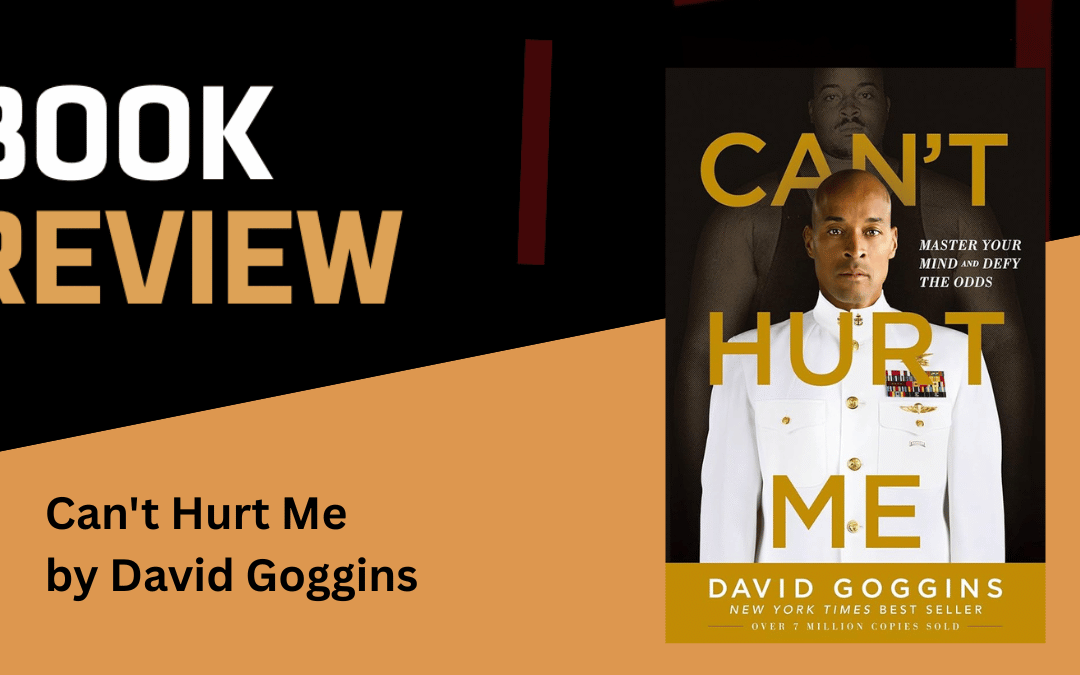David Goggins is not your typical motivational writer. His book Can’t Hurt Me is part memoir, part challenge, and part raw truth. He does not sugarcoat his story. He takes readers into the darkest corners of his life and shows how he fought his way out.
Most people will say that hardship breaks you. Goggins proves that hardship can build you. That is the contrarian beauty of his message. He flips weakness into strength. He takes pain and makes it a teacher.
The Story That Stays With You
Goggins grew up facing poverty, abuse, and racism. Many would see this as a curse. He saw it as training. It gave him grit long before he stepped into the Navy SEALs. His story is not about talent. It is about relentless effort.
This is where the book stands apart. Most success stories highlight natural gifts or lucky breaks. Goggins dismisses luck. He insists that discipline and hard work are stronger than talent. That feels refreshing in a world where shortcuts and hacks dominate advice.
The 40% Rule
One of the most striking ideas in the book is the “40% Rule.” Goggins says that when you think you are done, you are only at 40% of your potential. The body and mind still have more to give.
This idea can sound extreme. Yet it has a practical side. It means most of us are leaving untapped strength on the table. It is not about running ultramarathons like Goggins. It is about doing a little more when your mind screams stop. That small push is where growth begins.
The Positive Spin on Pain
People usually treat pain as an enemy. Goggins treats it as an ally. He embraces it. He studies it. He uses it to sharpen his focus.
This is not a call to harm yourself. It is a call to stop avoiding discomfort. Growth hides in discomfort. If you run from it, you miss your own potential.
That is what makes this book different from common self-help guides. It does not sell comfort. It sells the power of being uncomfortable.
The Accountability Mirror
Another concept from the book is the “Accountability Mirror.” Goggins wrote down his flaws and stared at them. He stopped making excuses. He stopped lying to himself.
This practice is brutal yet freeing. It strips away the noise and forces honesty. In a time when self-love is often confused with self-delusion, his mirror is a radical tool. He shows that true self-love comes from facing the truth, not hiding from it.
Why It Resonates
Many books tell you to dream big and manifest success. Goggins takes the opposite stance. He tells you to suffer on purpose. He asks you to chase what is hard. He suggests that suffering is the real path to freedom.
This message hits deep because it respects the reader’s strength. It does not talk down. It assumes you can handle the truth. And that belief alone is empowering.
Where I Disagree
While I admire his message, I also see a limit. Not everyone can live life at full throttle. His methods may feel too harsh for some. Sleep, rest, and balance also matter.
Still, I see value in his intensity. Even if you only take ten percent of his advice, it can change you. The book is less about copying him and more about finding your own edges.
Lessons for Everyday Life
You do not need to run 100 miles or join the military to apply these lessons. You can use them in small ways. Push through one more set at the gym. Stay with a tough project at work instead of quitting. Have the hard conversation you keep avoiding.
The book proves that resilience is built in small acts. Over time, those acts shape your identity. You start seeing yourself as someone who does not quit. That shift is priceless.
A Unique Read
Some will find the language rough. Some will find the tone aggressive. But that is the point. It is meant to shake you awake. It is meant to strip away comfort and reveal what is possible.
The audiobook, narrated by Goggins and his co-author Adam Skolnick, adds another layer. Between chapters, Goggins shares extra stories and insights. It feels like a podcast mixed with a book, which makes it even more engaging.
Final Thoughts
Can’t Hurt Me is not a guide for the faint of heart. It is a call to face discomfort and build toughness. It is a reminder that the mind is the strongest muscle we have.
I walked away not wanting to be Goggins, but wanting to be more of myself. That is the highest praise I can give a book. It does not ask you to admire him. It dares you to confront you.
In a world filled with easy answers, Goggins delivers the hard truth. And oddly enough, that truth feels like freedom.


